Will Zimbabwe’s Mnangagwa Succumb to the Stability Doctrine?
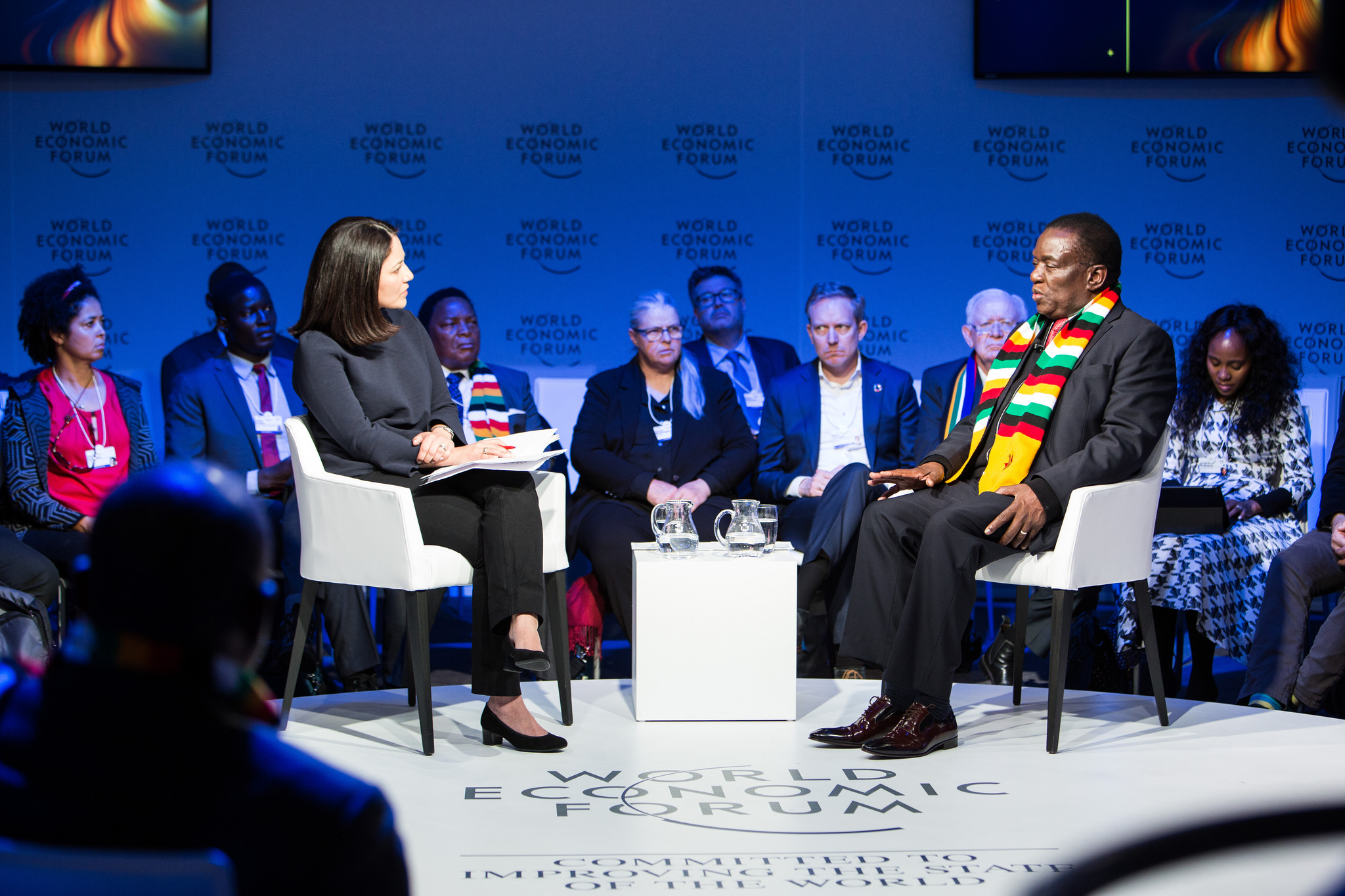 Mnangagwa at the 2018 World Economic Forum in Davos brings Zimbabwe back into diplomatic relations with the west. https://flic.kr/p/23KHzT2
Mnangagwa at the 2018 World Economic Forum in Davos brings Zimbabwe back into diplomatic relations with the west. https://flic.kr/p/23KHzT2
2017 was a revolutionary year for democracy in Africa. On September 1st, Kenya’s Supreme Court made history by nullifying the country’s last contentious election —for the first time in Africa— and ordering a new vote. Many incumbent presidents were replaced this year, as well. In the Gambia, Yahya Jammeh, who was president for 22 years, was forced to step down after he lost the election to Adama Barrow. When the same situation occurred in 2016, Jammeh rejected Barrow’s win, causing a constitutional crisis. Another notable democratic power shift took place in Zimbabwe as Robert Mugabe was forced to resign —ending his 37-year presidency. 2018, one hopes, will continue this series of democratic revolutions in Africa, with elections taking place in countries such as Cameroon, Egypt, South Sudan, and Zimbabwe this year. In contrast to previous years, the relative peace demonstrated in the 2017 elections shows a step in the democratic direction, but whether or not the countries will continue down that path is another question. In an increasingly neoliberal world, corporations and countries alike care less about what presidents do within their own borders. According to the “stability doctrine,” African leaders thus have incentive to maintain the status quo in their country in order to maximize their exports by keeping their global trade relationships secure and predictable. By choosing not to invest in political and social reforms, and instead mitigating revolutionary vigor that would produce a climate of uncertainty, leaders are prioritizing the international community over their citizens. Despite the economic progress these policies may generate —for both the African country and its trade beneficiary— the lack of democracy will ultimately harm the former in the long term, while Western leaders are left unscathed. Instead of turning a blind eye for the sake of business, international news sources should be critical of the rights and freedoms within seemingly democratic countries —even when they are flourishing economically.
Emmerson Mnangagwa, who is in charge of Zimbabwe until the next election, has delivered on his economic promises but has failed at his political ones —and the widespread approval of Mnangagwa by foreign media shows the stability doctrine at work. Overseas politicians and business-owners alike are excited about the prospect that Mnangagwa will bring if elected: namely, increased trade, which will provide access into Zimbabwe’s prosperous mining sector. Mnangagwa has already begun opening up to diplomatic relations with the West, most notably the European Union. Since his democratic promises have yet to materialize, many in Zimbabwe, in contrast to international observers, see the transition from Mugabe to Mnangagwa as the replacement of one dictator with another. However, in order for Zimbabwe to grow in the short and long terms, political and economic growth must move in tandem with one another. Otherwise, the stability doctrine will “destabilize” Africa. In an increasingly neoliberal world, corporations and countries alike care less about what presidents do within their own borders. African leaders thus have incentive to maintain the status quo in their country in order to maximize their exports by keeping their global trade relationships secure and predictable. By choosing not to invest in political and social reforms, and instead mitigating revolutionary vigor that would produce a climate of uncertainty, leaders are prioritizing the international community over their citizens. Despite the economic progress these policies may generate —for both the African country and its trade beneficiary— the lack of democracy will ultimately harm the former in the long term, while Western leaders are left unscathed.
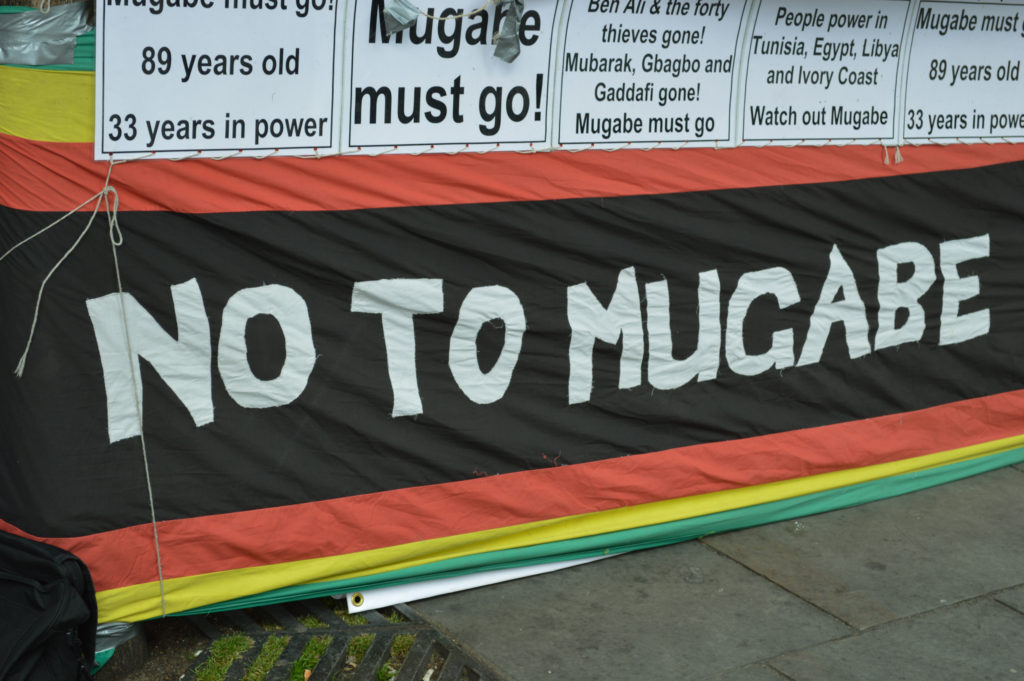
Ease of foreign exploitation, in many cases, is made possible by compromising the political freedoms of African citizens. In the Democratic Republic of Congo, for example, former President Laurent-Desire Kabila cultivated his ties with international mining companies from 1999 to 2002. The state-mining sector transferred approximately $5 billion in assets to private companies. Congolese elites were made rich, foreign companies were made richer, but little was given to the “poverty-ravaged population” —and the subsequent uprisings were “crushed” by the military to maintain stability. Though Zimbabwians successfully mobilized against Mugabe’s corrupt regime, Mugabe’s lack of political reform is starting to show similarities between him and Kabila. Therefore, Mnangagwa’s political choices, as well as his economic ones, must be scrutinized. In this pursuit, international actors play a key role in Zimbabwe’s democratic journey. Foreign powers must hold Mnangagwa accountable to democratic freedom rather than prevent it. This should not come in the form of military intervention, however. For example, AFRICOM, the US military intervention in Africa, appears humanitarian on the surface but causes greater chaos and instability in the regions where they intervene. After AFRICOM’s controversial raid in Somalia in 2009, a petition stating that “the mere presence of AFRICOM will be perceived as an act of aggression that will decrease, not increase, the likelihood of peaceful resolution of conflicts” was drafted. Troops should therefore not be deployed to forcibly alter a regime. Provisions to guarantee free and fair elections are part of Zimbabwe’s new constitution, but the problem lies in ensuring Mnangagwa follows them. Therefore, the international media must apply greater scrutiny to his political endeavours in an attempt to make domestic politicians and businesses do the same.
The shift between Mnangagwa’s foreign policies and those of Mugabe show the ideological shift between today’s neoliberalism and post-independence African nationalism. In 1987, Mugabe came to power through populist rhetoric; Zimbabweans initially saw him as a nationalist icon. But to those overseas, he was quickly looked down upon as a tyrant after seizing the land of white farmers. When Zimbabwe’s economy started slipping in the 1990s, Mugabe saw Zimbabwe’s economic hardships as resulting from a plot led by the UK to oust him as payback for his land seizures. From that point onward, Zimbabwe’s relationship with the West continued to fracture. During the 2002 election, the EU imposed targeted sanctions on Zimbabwe for Mugabe’s refusal to deal with human rights abuses; the country was outcasted by many Western governments as a result. Lacking trade and infrastructure, Zimbabwe’s economic problems worsened, and the compounded backlash against Mugabe by Zimbabweans demonstrated both their dissatisfaction and their desire for radical change.
How radical his replacement is, though, is up for debate. Mnangagwa served as “one of Mugabe’s closest aides” throughout much of his presidency, “cycling through roles including spymaster and security chief […] before being made vice-president.” His political career has also been littered with accusations of corruption and human rights abuses. Many wonder the extent to which he will keep Mugabe’s policies intact and use similar rhetoric and tactics to do so. Other Zimbabweans were invigorated by the possibilities a political power shift can bring after three decades under the same ruler; nationalistic optimism followed after the military coup as citizens celebrated in the streets. Unsure of how the West’s relationship to Zimbabwe would change with Mnangagwa in power, the international media responded to Mnangagwa’s ascension in a celebratory yet skeptical way. As Mnangagwa said he was open to rejoining the Commonwealth and began implementing various economic reforms, the European Union “made some positive conclusions on the Zimbabwean political and economic situation” on January 22nd. However, although Mnangagwa has largely delivered on his economic promises, his political ones have yet to be addressed.
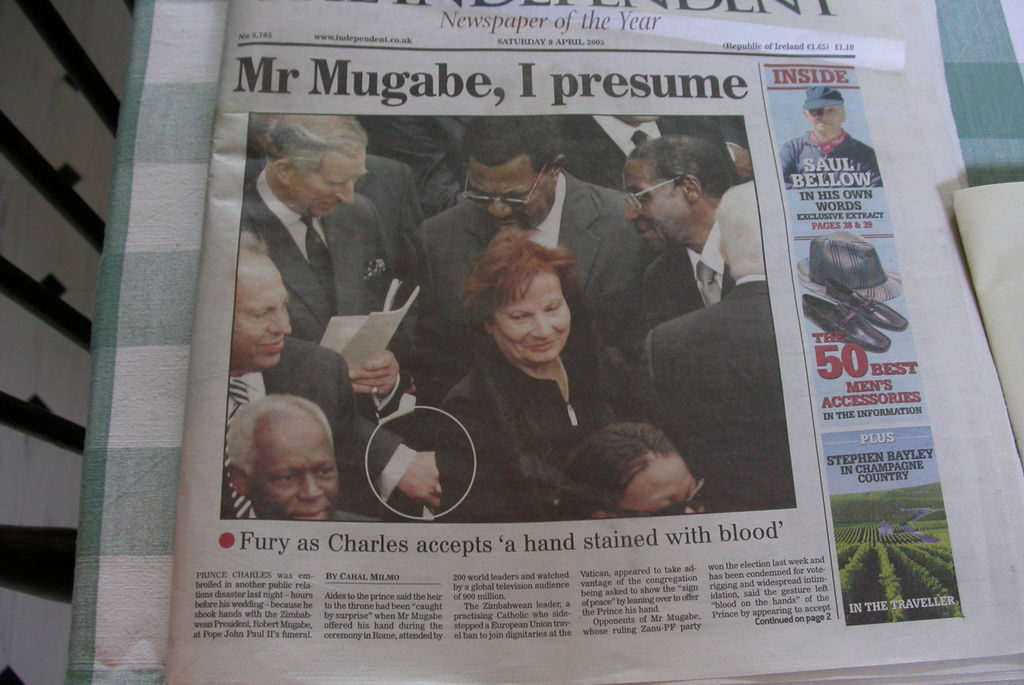
Some of the economic reforms he conducted over the short course of his interim presidency include a three-month amnesty for the return of externalized money and assets, high-profile visits to neighbouring countries to meet with Zimbabwe’s diaspora business community, and announcements of a million-dollar investment deal. To institutionalize such reforms, the Ministry of Foreign Affairs was renamed “Foreign Affairs and International Trade with the pursuit of economic interests as a key mandate.” However, restoring state legitimacy cannot happen without both economic and political reforms. Showers Mawowa, Deputy Director of the Southern Africa Liaison Office, says that Mnangagwa “appears motivated by the quest for domestic, regional and international legitimacy.” However, will he “go all the way,” Mawowa questions. Or is he “seeking minimalist compliance to placate domestic, regional and international opinion?”
Many suggest, therefore, that Mnangagwa’s regime is shaping up to model that of Rwanda or China, namely “an efficient state that delivers services and economic growth but one that is not necessarily democratic.” But people are divided on whether or not this is a good path for Zimbabwe to embark on. Whereas African media tend to be more critical of Mnangagwa’s actions, the tendency of international sources to praise him for his economic innovation, despite “minimalist compliance” on all other fronts, reveals afropessimism, which leads foreign media to set a low bar for new African presidents and expect mediocracy. If such social problems transpired within their own borders, Western powers would be livid. Nevertheless, because Western countries tend not perceive true African potential, they are quicker to issue praise. A similar instance occurred in the August 2017 Kenyan election. John Kerry, the leader of the Carter Center’s observation delegation, said he was “happy” with the “fair” election and that evidence of corruption was simply “little aberrations here and there.” For Kenyans, however, the election led to a momentous Supreme Court annulment.
In Zimbabwe’s case, underlying many praise reports for Mnangagwa is the suggestion that political change should be placed on the back burner in order for the country to reboot its economy. Economic exploitation by developed countries is thus mystified because the asymmetric trade relationships are understood to be an economic necessity. The suggestion is, however, that once a country’s economy grows, they will have more money to invest in the welfare of their citizens. Such was the same basis of IMF-imposed structural adjustment policies (SAPs), which required African leaders to drastically cut social funding and focus their efforts on the production of a single commodity; this did not only “fail spectacularly” but also left Africa “worse off today than a decade ago.” The likelier outcome is the creation of a vicious cycle: the leader, acting as gatekeeper, accumulates wealth and power until citizens rise up against him. This was seen in South Africa, as Jacob Zuma fostered ties with the notoriously corrupt —but notoriously wealthy— Gupta family, leading scholars to view the ANC as a party run by gatekeeper politics.
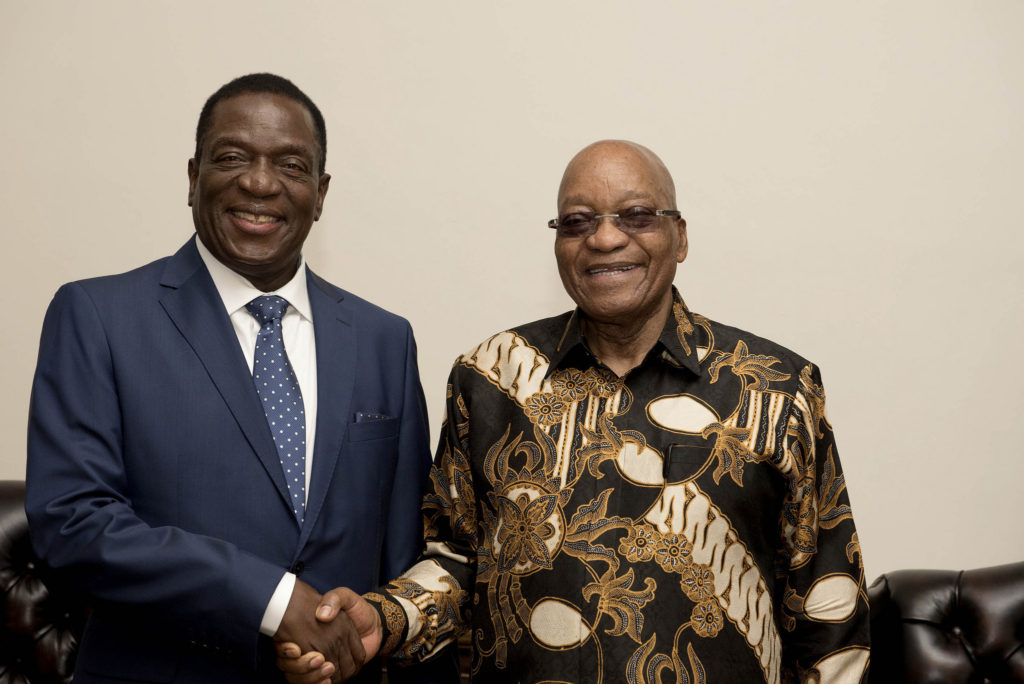
Though “gatekeeper” has been used to describe many African leaders in the postcolonial era, the stability doctrine is a newer phenomenon and shows the shift in how foreign governments treat Africa. During the Cold War, the nature of African politics was of the utmost importance of those trying to spread their ideological influence and consolidate power. Cuba and the Eastern Bloc tried to spread communism, while the United States sought to prevent it. This had a “profound and sometimes devastating impact.” Mugabe’s rise to power was, in fact, largely due to the support he received from the U.S. during the Cold War. One common thread between all the interventions, however, was the manipulation of African states for social capital and the diminishment of sovereignty on part of the African state.
Now, the world order greatly differs. The rise of China, Turkey, and other non-Western countries has threatened the West’s “long-standing economic domination in Africa.” This, as the stability doctrine suggests, gives African elites “more leverage” and has “led Western policymakers, afraid of losing their patronage networks, to weaken their good governance agenda.” For these trade relationships to appear favourable, however, corporations “need predictable politics to operate.” Limiting their country’s political turbulence will thus generate more revenue for African elites.
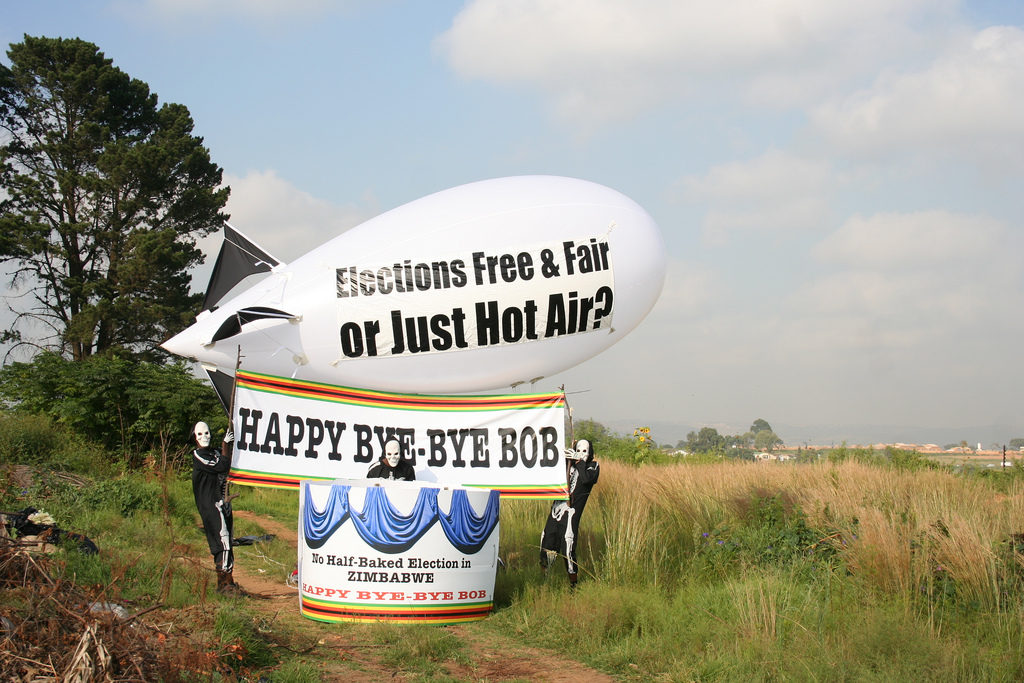
The stability doctrine, grounded in neoliberalism, stands in direct contrast to the Cold War. Both are unfavourable options because they result in the loss of sovereignty, whether that is African political leaders losing their sovereignty through forced regime change or locals losing their sovereignty to a tyrannical president. A balance must ultimately be struck, and the responsibility is shared between international and local actors. In Zimbabwe, those in charge of the elections should take cues from the various elections in Africa in 2017 to not repeat the mistakes of previous elections. The role of media is also crucial, especially since Reporters Without Borders placed Zimbabwe 128th out of 180 countries in terms of press freedom, citing oppressive media legislation and harassment of journalists as reasons for their low rating. Moreover, there must be increased accessibility to and transparency of the voter roll. 24 hours before the 2013 elections, it was revealed that the voter roll contained the names of many deceased voters —not dissimilar to the situation in the 2017 Kenyan elections— but the opposition did not have enough time to take action.
From the proxy battles during the Cold War, along with many violent and disastrous U.S. invasions and SAPs, it’s clear that armed foreign intervention creates long-term problems for African countries. On the flip-side, using a focus on economic relationships as an excuse to turn a blind eye to African social problems is also not the solution. Fair political representation and democratic freedoms are not antithetical to economic growth, and they should not be treated as such by African leaders or overseas politicians and corporations.
Edited by Jason Li
